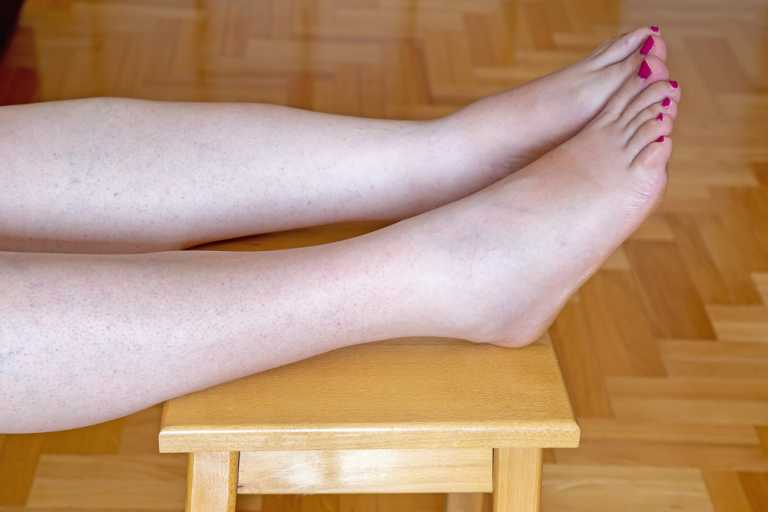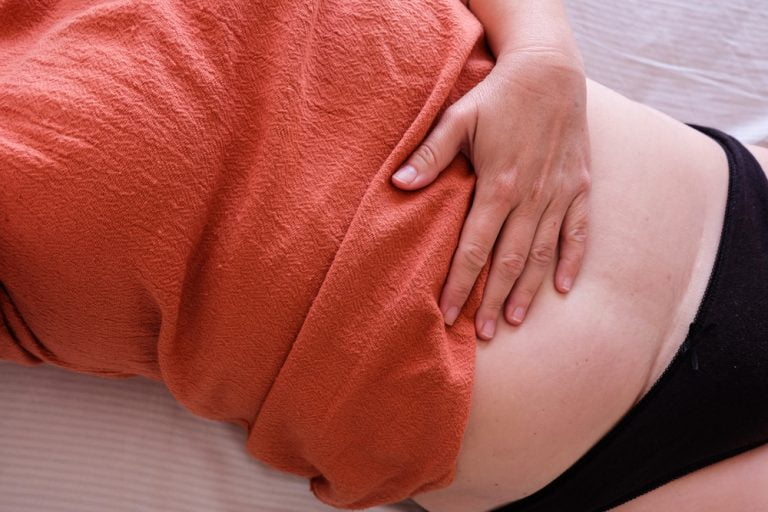The body goes through an amazing transformation during pregnancy and after. This first period after your c-section may differ from what you’re used to. Everyone experiences it differently. We’ve gathered helpful info from health experts to help prep you for when your cycle returns.
When Can I Expect My First Period After a C-Section?
Studies show that one-third of moms get their first period within the first 40 days of childbirth. Then, over half see it return during the first three months.
Most of your body returns to normal after you have a baby and complete your recovery. Your hormones kick into high gear to help with breastfeeding. It takes no time for your period to return if you’re not breastfeeding.
How you deliver the baby doesn’t impact your first period. It may occur earlier or later depending on other factors, like:
- age
- nutrition
- sleep quality
- breastfeeding
- Other chronic diseases
- mental health state
Young first-time moms may also find their periods came faster than mothers with other kids.
What Is The First Period After a C-Section Like?
You are bleeding for about six to eight weeks after your c-section. It’s not your period but expected. The signs of your first cycle after delivery will most likely occur after this time.
Some moms experience a heavier period with that first period. It may also be more painful. The reason is your uterus grew larger with the baby leading to more of the uterine lining shedding at first.
Recent studies also show that hydration may impact the pain felt during your periods. It’s easy for a mother and their family to only focus on the newborn and their needs. But moms must ensure they eat a healthy diet and drink plenty of liquids to stay hydrated.
Your uterus may also be a little larger than it was pre-pregnancy. Increased bleeding is possible with this change after having a baby. Your doctor should know your health history as they track your pregnancy. This can help lower your risk for any issues.
What Else Might Be Mistaken For my First Period?
Lochia may be mistaken for your period. It’s vaginal discharge after childbirth. It consists of the following:
- Blood
- Mucus
- Tissue
- Other uterine contents.
There are three stages of lochia bleeding.
Lochia Rubra
- First stage of lochia
- Lasts three to four days.
- Dark red or bright red blood seen
- Small clots are normal.
- Mild, period-like cramping
- Flows like a heavy period
Lochia Serosa
- Second stage of lochia.
- Last four to 12 days.
- Pinkish or brown discharge.
- Less bloody, more water-like.
- Fewer clots or no clots.
- The flow is moderate.
Lochia Alba
- Last stage of lochia.
- Last 12 days to six weeks.
- Little to no blood.
- Yellow and white discharge.
- Light spotting is normal.
- No clots.
It’s best to think of lochia as how your uterus is cleaning house. It works to shed anything needed during your pregnancy. But it can smell like menstrual blood and is easily mistaken for your first period.
People shouldn’t smell a fishy or foul odor. Please notify your obstetrician, birthing specialist, or midwife about this odor. Healthy period blood has a natural musty or metallic odor. It may be a sign of an infection requiring medication or other treatments.
A physical exam and health history can tell your doctor why you’re bleeding. At your check-up appointment, it’s best to inform them of any symptoms or concerns.
A c-section requires an incision in your abdomen. The doctor may also use stitches, staples, or bonding in the operating room to close the incision. You should watch for any bleeding from your incision or scar as it heals. A visible tear or lots of redness with bleeding at the incision site is one of the many complications of c-sections.
Scant incision bleeding may occur for up to six weeks after your procedure. Nurses may offer tips for patients to help manage their incisions. Daily activities like taking a shower or putting on clothing take extra care.
Healthcare providers also closely watch the incision in the hospital and after discharge. They may also prescribe antibiotics to help prevent infection.
Will my Period Be Different After my C-Section?
Your period may change indefinitely. Some moms find it takes as many as six months to become regular. It’s typical for a period to become more regular than before pregnancy.
You might also experience less pain in your periods after giving birth. The pain relief comes from your uterus going into a more natural position. This shift may lessen cramping.
Giving birth can lead to various conditions that impact your cycle. These include:
- Polyps or fibroids: Growths in your uterus that may cause more painful periods. They need monitoring and sometimes treatment.
- Uterus thickening: Hormone therapy and surgery help treat this condition, also known as adenomyosis.
- Thyroid disorder: An overactive or underactive thyroid may affect your period’s intensity. Giving birth can negatively affect your thyroid gland.
Research shows that fibroids may grow larger during pregnancy due to hormonal changes. Fibroids can also disappear after childbirth. They’re pretty unpredictable. Let your doctor know if you experience more painful periods after your c-section.
Something else to think about is how pregnancies affect other body areas. For example, your thyroid gland.
Postpartum thyroiditis is when a patient’s thyroid becomes inflamed after having a baby. There is no known cause for this condition. Thyroid medication and other treatments might be necessary if your symptoms are severe.
When Should I Call my Doctor About my Period?
Your doctor needs to know if you experience an excessive amount of bleeding.
Menorrhagia is a medical term used to describe heavy menstrual bleeding. Many women experience heavy bleeding with their cycle. It may not mean a diagnosis of menorrhagia.
This condition is more severe. It prevents you from doing your usual activities due to all the blood loss and cramping.
Symptoms of menorrhagia include:
- Passing blood clots larger than a quarter.
- Bleeding lasting longer than a week.
- Soaking through one or more pads or tampons every hour for several consistent hours.
- Needing both a pad and a tampon to manage your flow.
- Avoiding work or staying in bed due to your heavy period.
- Experiencing anemia symptoms like tiredness, shortness of breath, or weakness.
Several possible causes exist for this type of bleeding. Hormones or uterine fibroids cause excessive bleeding. It can also be a complication from pregnancy, like placenta previa or miscarriage.
If you experience any menorrhagia symptoms, please inform your healthcare provider immediately. They may ask you detailed questions about your medical history and menstrual cycles.
Some information needed might include the following:
- How do your periods affect your quality of life?
- How long is your menstrual cycle typically?
- How many days does your period usually last?
- How many heavy days do you experience?
- How old were you when you first got your period?
They might ask about your family history, too. Do any women in your family experience a similar problem with their periods? Families can often pass on specific genetics that prevents one’s blood from clotting.
A case like that warrants medical care to help manage the symptoms. Your doctor may order a blood transfusion or IV fluids to help.
Another complication is postpartum hemorrhage. It occurs when you lose about 1,000 ml of blood after a c-section. It happens on the day of delivery and up to 12 weeks later.
Postpartum hemorrhage results when uterine contractions can’t stop the bleeding with delivery. It also happens when parts of your placenta remain in the uterus. The condition is more common after c-sections.
Symptoms to report right away to your doctor include:
- Dizziness
- Fast heart rate
- Pale or clammy skin
- Nausea or vomiting
- Worsening stomach or menstrual pain
- Soaking more than one pad every two to four hours
A postpartum hemorrhage is a medical emergency. Please listen to your body and ensure your doctor knows if any of the above symptoms happen.
How Does Breastfeeding Affect Me When my Period Returns?
Breastfeeding does influence how soon your period returns. Around 70% of breastfeeding moms get their first period within six months. After that, it may take a little longer, depending on how long you nurse your infant.
That’s because your body produces a milk hormone called prolactin. Prolactin tells the breasts to produce milk.
Nipple stimulation signals the mind to create prolactin. It also triggers milk to flow from the breast.
Breastfeeding needs prolactin, but the hormone lessens the production of other hormones in the ovaries. The change in hormone levels during breastfeeding can prevent your period.
Other ways breastfeeding affects your period after pregnancy are:
- Your baby’s sleeping. The more your little one wakes up in the night to eat, the more milk mothers produce. As you sleep more through the night, your milk won’t come as much and may trigger your period.
- You are giving your baby solid food. If the baby eats more solid foods, you’ll produce less milk. Your period may start earlier. If they take time to take in solids, your period may delay further.
- Your hormones. Every woman has different hormone makeup. You may nurse all night long and still get your period. Others may not get their period months after they wean their baby from breastfeeding.
Does my Period Affect my Breast Milk?
There’s no clear research indicating your period affects your breast milk. But some moms feel their milk supply dips a bit during their cycle. That may relate to changes in hormone levels that occur during your period.
But any impact is negligible. Staying hydrated during your period is a great way to prevent a low milk supply.
Hospitals and lactation teams often provide support to a new breastfeeding parent. Please consider their services if:
- You’re having trouble nursing your baby.
- You’re seeking pain relief due to breast engorgement or nipple discomfort.
- You need options on how to increase your milk production.
Breastfeeding can be challenging. Sharing feelings with a partner, support person, or friends might help. Other supportive options and resources include:
- Support groups
- Books
- YouTube
- Social media platforms like Instagram.
Healthcare providers are more credible sources of information. They should be your first point of contact.
How Does Birth Control Affect me When my Period Returns?
Different types of birth control have their side effects. For example, you might experience breakthrough bleeding between periods. Typically, they don’t significantly impact when your period returns.
Ovulation may occur within a few weeks of giving birth. So, doctors recommend you plan your method of birth control while still pregnant. You may even begin birth control before you leave the hospital after delivery.
Other Medications that Affect Your Period
Some medications and supplements can impact your menstrual cycle. Studies show vitamin D helps regulate periods in women. Calcium may also help. Other drugs that affect your period include:
- Aspirin and other medicines that work to prevent blood clots
- Non-steroid anti-inflammatory drugs (NSAIDs) like ibuprofen and naproxen
- Hormone therapy
- Chemotherapy
- Thyroid medications
If doctors start you on a new medicine after pregnancy, it may change your menstrual cycle. For example, the number of days or the amount of bleeding can change.
How Else Might my Body Change After my C-Section?
The postpartum period is the time after you give birth. During this time, you may expect specific changes in your body.
The following symptoms and conditions may occur:
- Tender breasts. Your breasts may become full and tender as they make milk.
- Hair loss. Pregnancy hormones increase the growth of your hair. So, you may lose some of that hair when you’re no longer pregnant.
- Stretch marks. Darkened areas of your skin won’t go away after delivery but may fade.
- Mood changes. New moms may feel a whirlwind of emotions, cry, or have trouble sleeping. Postpartum depression is a more severe mood disorder with other symptoms like fatigue.
- Weight changes. It’s common to still look pregnant after giving birth. Over time, you will lose the excess fluid and some weight. Maintaining a healthy diet and regular exercise will also help you lose extra weight.
- Vaginal discharge. Red and heavy discharge for the first few days after birth is normal. Then, it turns more watery and white in time.
- Problems urinating. Nurses insert a catheter into your bladder during a c-section. Sometimes people have trouble urinating after or may find blood in their urine.
- Weakness from Anesthesia. Your legs might feel weak after receiving your epidural or block in the operating room. This effect should subside soon after you deliver your baby.




